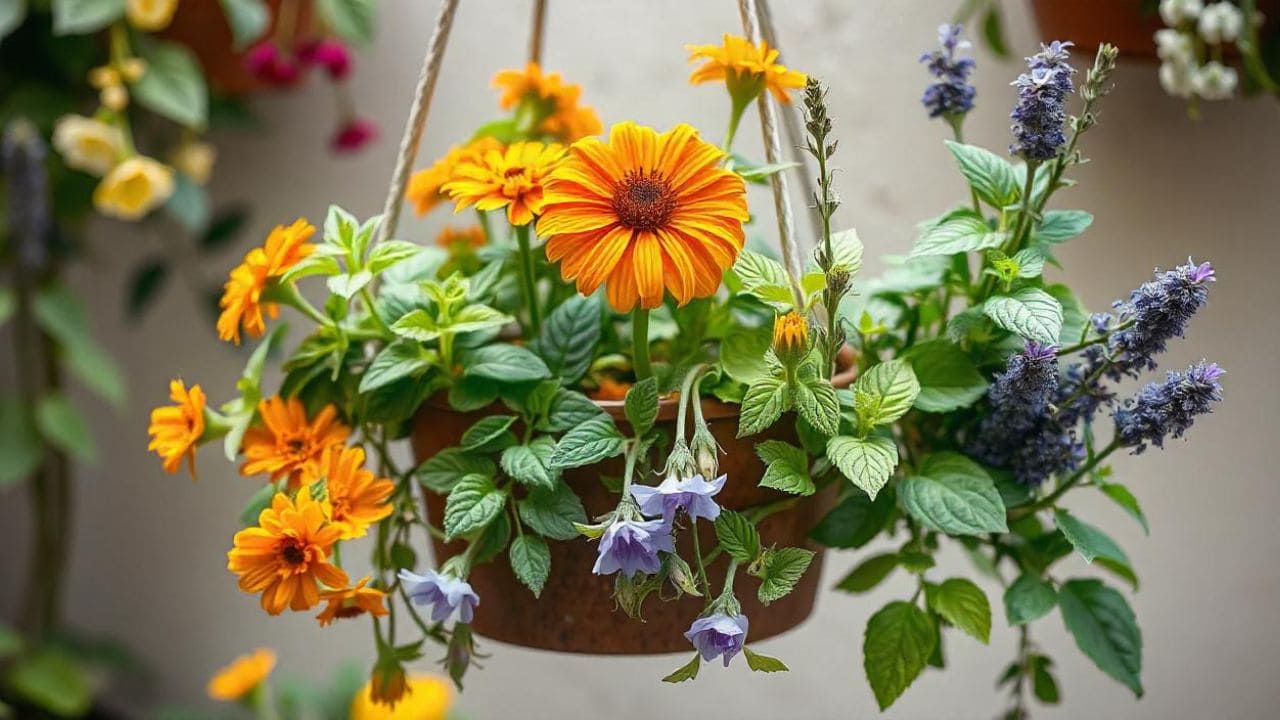Table of Contents
Introduction – Indoor plants that repel mosquitoes
Mosquitoes are really bothersome either you are outdoor or inside your home. There are natural hanging varieties of plants that can be planted to create a natural shield inside your home. These hanging plants that repel mosquitoes contains active compounds that makes them effective mosquito repellents.
We have created an exhaustive list of 40+ mosquito repelling plants that keep mosquitoes away. Its a must read for all gardeners, homeowners and garden owners.
How can hanging plants repel mosquitoes?
These hanging plants that keep mosquitoes away indoors, continuously spreads strong aroma throughout the day and night, which interferes with the smelling senses of mosquitoes. These fragrance creates an environment that acts like a shield and restricts mosquitoes to enter inside. The mosquitoes find these scents and fragrance highly unpleasing and they leave the area.
By placing these hanging mosquito repellent plants indoor around the walls and near windows and corners, it gives us mosquito protection along with decorative aesthetics as a wall décor. Placing pots on floors can occupy spaces around and it may also hurt your toes and feet every time, so the hanging plants are the best options.
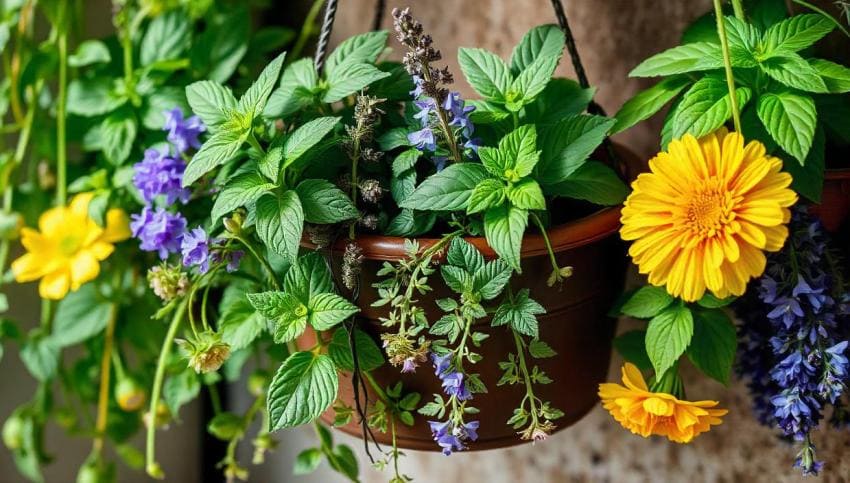
Image Credit: Designed by Freepik
Best hanging plants to keep mosquitoes away
(Indoor Mosquito repellent Plants)
1. Citronella
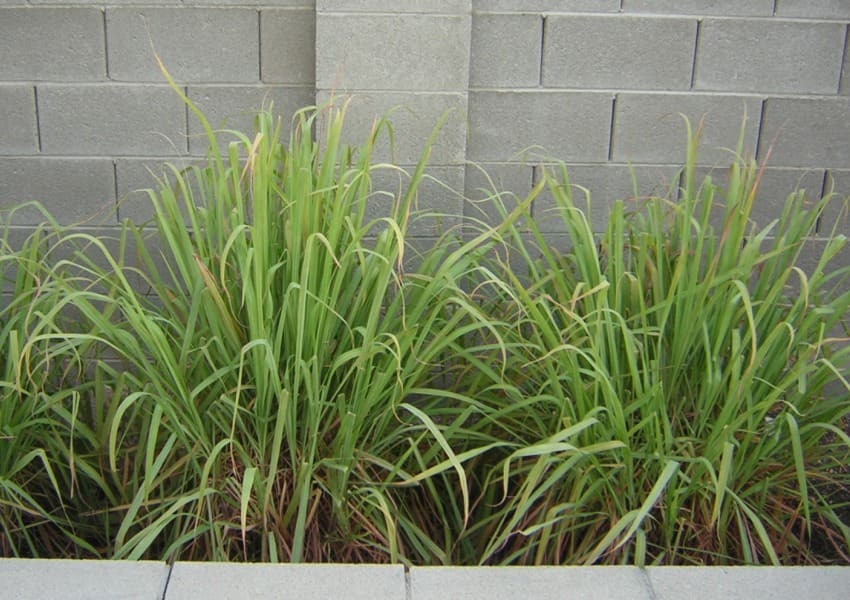
Image Credit: Flickr by Wilnora | Content License
Botanical Name: Cymbopogon nardus
Effectiveness:
Citronella has strong mosquito repelling properties very similar to lemon grass and they should be planted inhouse for better mosquito protection. Citronella plants are very effective and can enhance the effects of other mosquito repelling plants multifold when placed with them together.
Maintenance:
They require regular watering and pruning. They needs full sunlight to maintain their growth.
Placement position:
Citronella plants are like long grass and can be placed at shorter heights around display tables, patio or wall mounted low shelves, etc. These are not flowers and therefore they can be placed near doors and outdoor spaces.
2. Lavender
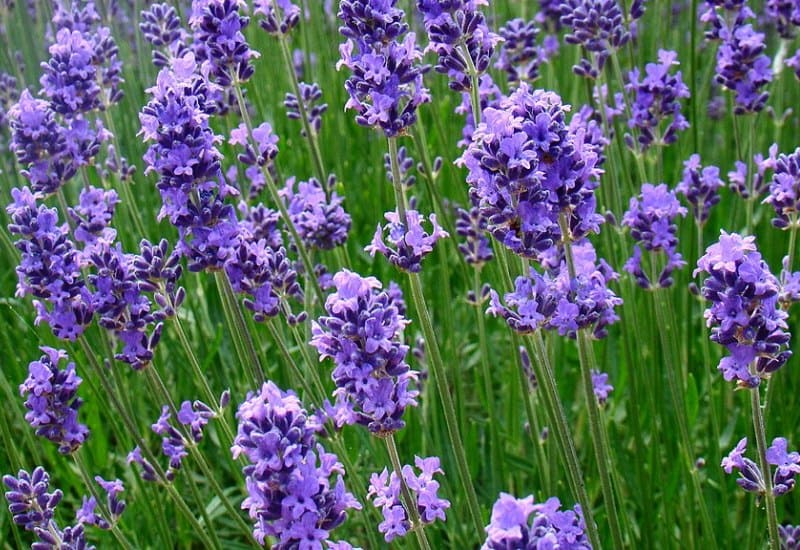
Image Credit: Google Images | Content License
Botanical Name: Lavandula
Effectiveness:
It is highly effective against repelling mosquitoes due to its strong pleasant lavender fragrance. As it contains linalool, which has strong mosquito repelling property. The lavender fragrance quickly spreads all over your home indoors spaces, and creates a barrier against mosquitoes. You can hang pots and baskets around the doorways and indoors around your passage walls or near windows.
Maintenance:
Needs proper watering, with well drained soil. Keep the soil moist and do not allow it to dry completely. It also requires full sunlight, so keep it near sunny spot or where it can get sufficient sunlight.
Placement position:
It should be hanged near windows to restrict the entry points for mosquitoes. It can also be planted inside bedroom walls as it has calming effects and it also improves sleep quality.
3. Lemon Balm
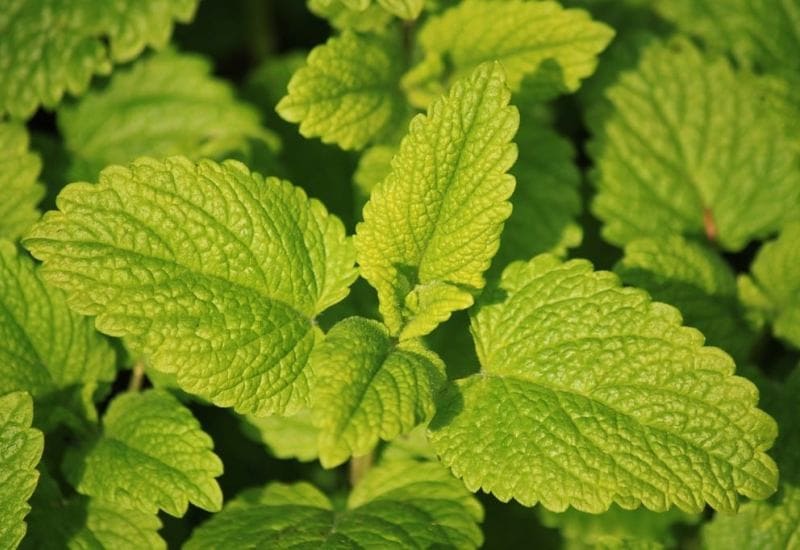
Image Credit: Google Images | Content License
Botanical Name: Melissa officinalis
Effectiveness:
It has a strong lemony smell which releases when you rub or crush the leaves. This lemony smell has a strong mosquito repellent action.
Maintenance:
Easy to grow indoors as a hanging plant, which needs sufficient sunlight and well drained soil.
Placement position:
It has culinary uses as well and therefore can be placed near kitchen.
4. Basil
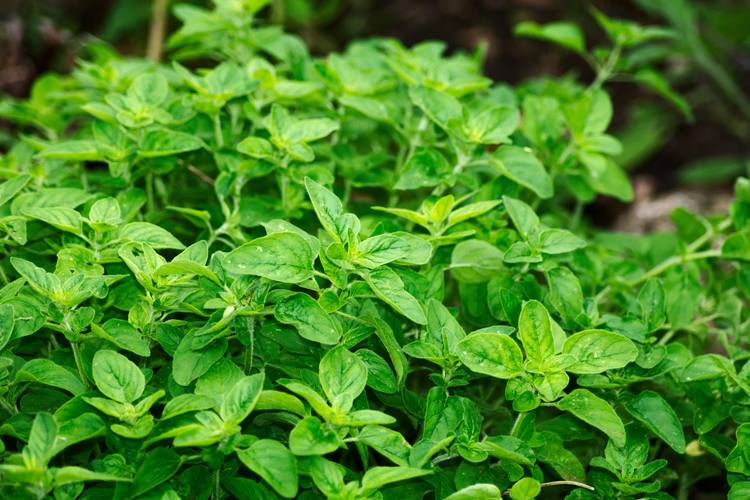
Image Credit: Google Images | Content License
Botanical Name: Ocimum basilicum
Effectiveness:
The effectiveness is enough to deter mosquitoes but it can be enhanced by combining with other plants that are equally strong mosquito repellents. It also has many health benefits and therapeutic properties.
Maintenance:
They need warm temperature and sun light and sufficient moisture. No other maintenance and can be easily grown in pots.
Placement position:
Preferably near kitchens and dining rooms, as it has many culinary uses.
5. Rosemary
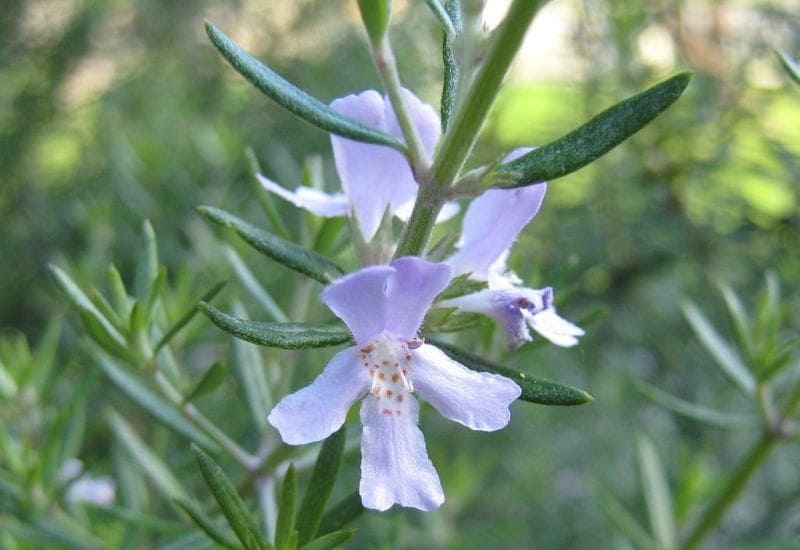
Image Credit: Google Images | Content License
Botanical Name: Salvia rosmarinus
Effectiveness:
It is very effective in repelling mosquitoes as well as other pests with its strong woody smell. The hanging pots of rosemary plants will keep mosquitoes away.
Maintenance:
Very low maintenance as it just requires full sunlight and infrequent watering.
Placement position:
Outdoor sitting areas, near patio, or inside kitchen. Best suited when placed near sunny spots and near windows.
6. Marigold
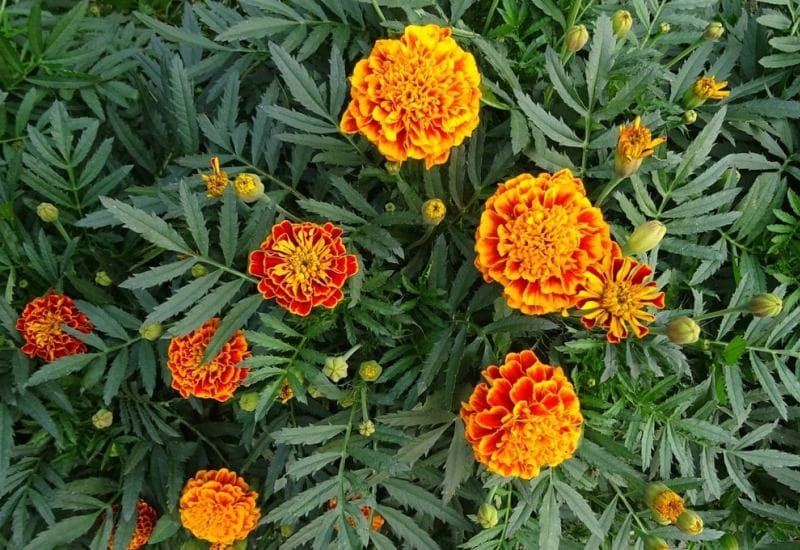
Image Credit: Google Images | Public Domain
Botanical Name: Tagetes spp.
Effectiveness:
It contains pyrethrum which is an efficient insect repelling compound. Hanging them near the windows and balconies can restrict entry of mosquitoes inside your home. It has bright colored flowers which gives an appealing vibe to your indoors.
Maintenance:
It needs full sunlight and regular watering. However, proper care may be required to maintain the beauty of its flowers.
Placement position:
It can be placed around sitting areas and living rooms. The colored blooming flowers will enrich your soul with freshness and life.
7. Mint
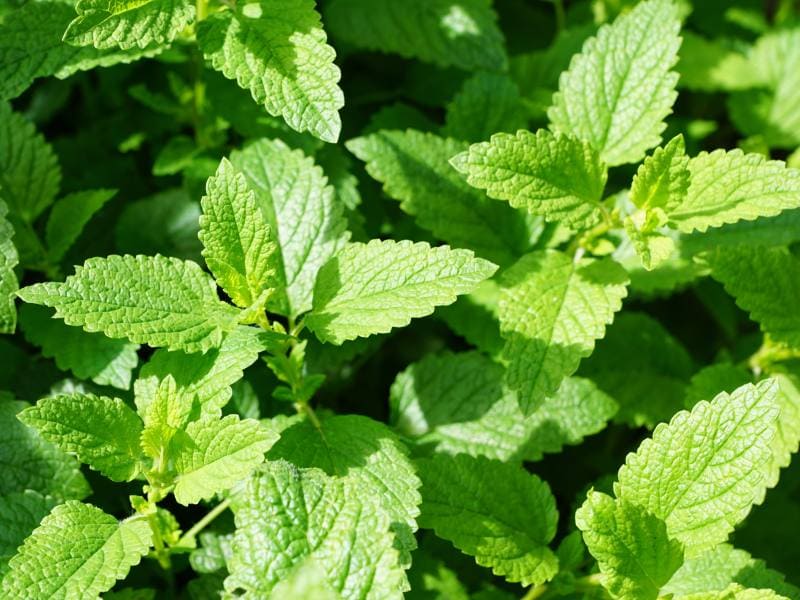
Image Credit: Google Images | Public Domain
Botanical Name: Mentha spp.
Effectiveness:
The strong menthol smell is very effective in keeping mosquitoes away. However they should be combined with other plants like lavender or citronella to give a strong barrier with multiple layers of mosquito protection.
Maintenance:
They need to be watered frequently as they require moist soil. They grow quickly and therefore should be pruned regularly. Also requires partial shade to avoid drying.
Placement position:
Wide usage in cooking and therefore must be placed in and around kitchen.
8. Lemon Thyme
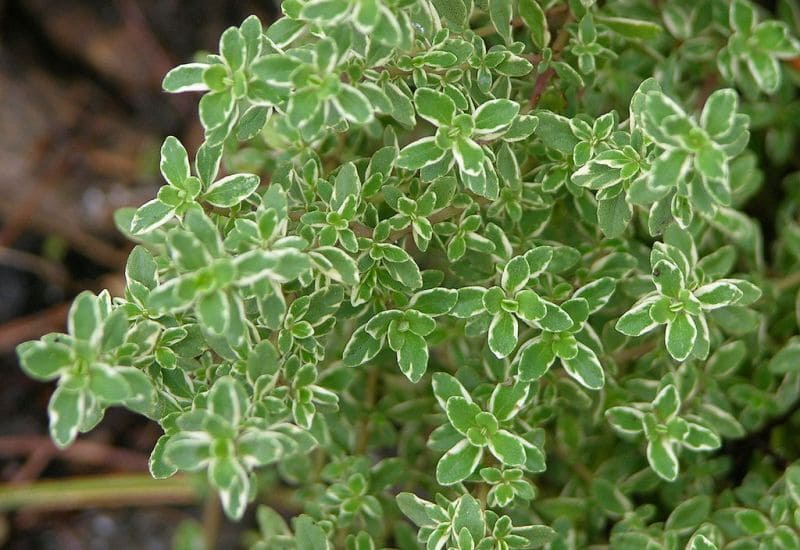
Image Credit: Wikimedia by Derek Ramsey | Content License
Botanical Name: Thymus citriodorus
Effectiveness:
The menthol content makes it a strong mosquito repellent. The strong minty aroma keeps mosquitoes away, and the freshness will add life and boost your creativity and performance.
Maintenance:
They are fast growing and therefore needs trimming regularly. They also needs sufficient water with adequate shade.
Placement position:
They are widely used in cooking and they must be placed in and around kitchen.
9. Catnip
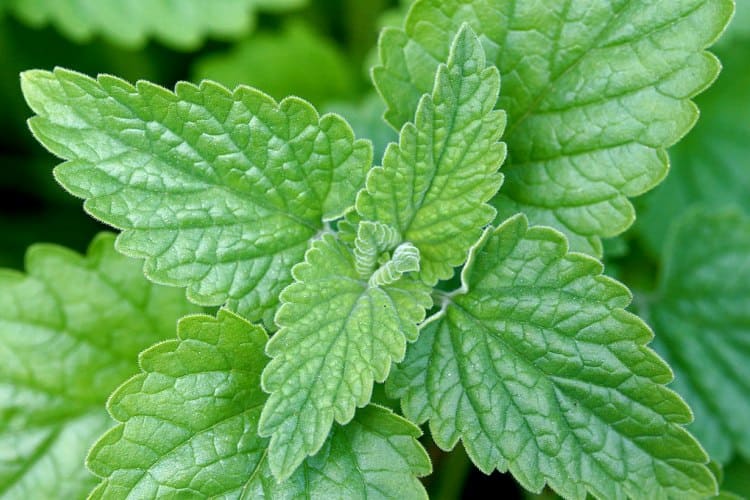
Image Credit: Flickr by liz west | Content License
Botanical Name: Nepeta cataria
Effectiveness:
The actual compound is nepetalactone, which has a strong mosquito repelling action. It effectiveness is said to be more than commercial products like DEET.
Maintenance:
It needs partial sun light and well drained soil, and so any extra efforts are not required.
Placement position:
It should be planted near areas where mosquito activity is higher and more frequent, like porches and patios.
10. Geranium
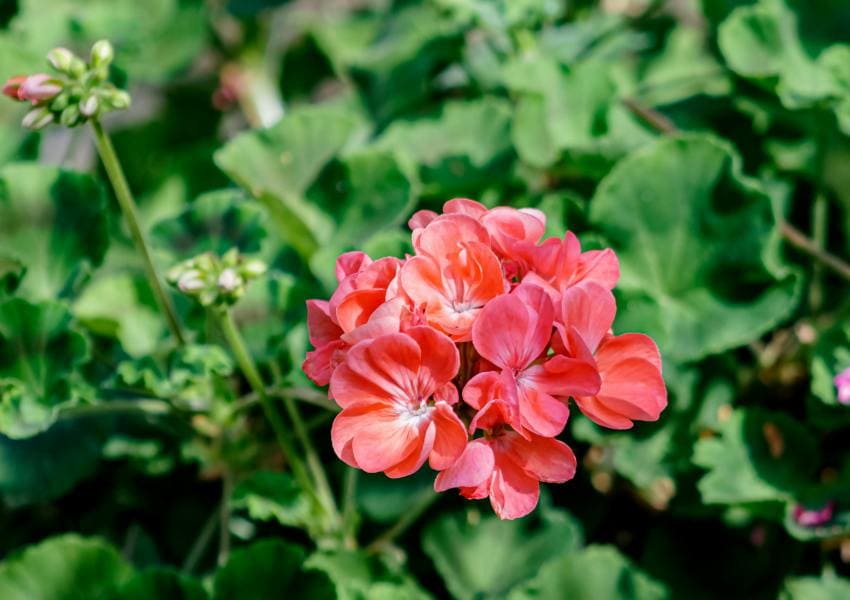
Image Credit: Pexels by László Glatz | Content License
Botanical Name: Pelargonium
Effectiveness:
The geranium species specially lemon scented varieties are more effective in repelling mosquitoes. Their bright colored flowers also add aesthetic and feel to the indoors
Maintenance:
They need full bright sunlight and regular frequent watering.
Placement position:
They are mostly placed near sunny spots or areas where direct sunlight falls. Preferable doorways and windows.
Hanging mosquito repellent plants – Indoor/Outdoor suitability
| Plant Name | Indoor Outdoor suitability | Maintenance required | Fragrance strength | Effectiveness |
|---|---|---|---|---|
| Citronella | Outdoor | Moderate | High | Very High |
| Lavender | Indoor/Outdoor | Low | High | Strong |
| Lemon Balm | Indoor/Outdoor | Low | High | High |
| Basil | Indoor/Outdoor | Low | Moderate | Moderate |
| Rosemary | Indoor/Outdoor | Low | Strong | Strong |
| Marigold | Outdoor | Low | Moderate | Moderate |
| Mint | Indoor/Outdoor | Moderate | Moderate | Moderate |
| Lemon Thyme | Indoor/Outdoor | Low | Moderate | Moderate |
| Catnip | Indoor/Outdoor | Low | Strong | Very High |
| Geranium | Indoor/Outdoor | Moderate | High | High |
| Eucalyptus | Outdoor | Low | Strong | Very High |
Benefits of hanging mosquito repelling plants
1. Pleasant fragrance
Apart from mosquito repelling action they give an aesthetic ambience with a beautiful and pleasant smell all around you. It spreads across your home in each and every corners, giving you a feel of fresh and lively experience.
2. Easy maintenance
These plants are easy to grow and require low maintenance. Most of them are perennial plants and therefore need one time plantation efforts, and slight maintaining efforts on weekly basis.
3. Multiple use
These plants have multi fold uses like culinary, health benefits, therapeutic properties, pest repellent, fragrance, etc. Plants like lemon grass can be used for making lemon grass tea, Peppermint, thyme, lavender can be used in herbal teas, while many other have culinary uses. They are added in dishes as well as for garnishing purposes.
4. Cost effective method
This is a low cost effective and natural mosquito control method, that are also pest specific and they do not harm other useful insects or organisms.
5. Nature friendly
They do not leave any harmful residue like commercial products. They are completely natural and free of any harmful residue or waste products.
Methods to enhance the effectiveness of hanging mosquito repelling plants
1. Strategic placement:
Place and position these plants around windows, doorways, outdoor spaces, and every corner of the house where mosquito activity is higher and more frequent.
2. Crushing leaves:
You may need to crush the leaves of these plants to release enough scent that will spread and cover more area to create a barrier for mosquitoes.
3. Group hanging plants that keep mosquitoes away:
You can combine two or more plants in groups and place the hanging baskets strategically around the home and outdoor spaces. This will create a more strong and intolerable barrier with multiple shields of protection.
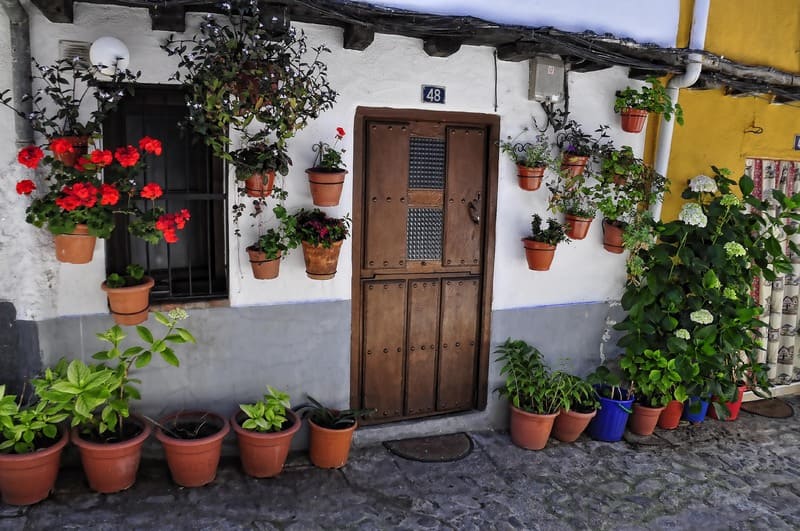
Image Credit: Google Images | Public Domain
Maintenance tips for hanging plants
The following tips can help you in maintaining the plants and flowers, its freshness and appearance:
- Regular pruning: Prune these plants regularly to encourage their growth and maintain their shape.
- Water accordingly: They should be watered enough as per their individual requirements. You should water accordingly, like mint needs more water and moisture in soil, while rosemary needs dry conditions.
- Adequate sunlight: Most of these plants requires full sunlight and therefore they should be kept under sun or at sunny spots of your home.
- Monitoring: The plants can attract insects, bees and butterflies which can also harm other plants. You should monitor and check for any infection or disease in plants.
Conclusion
Hanging mosquito repelling plants are the practical and aesthetic solution against mosquito invasion inside your home. These plants give natural protection without any harmful residue and waste products, however their usage inside your home should be considered after a thorough research, if you have pets in your home.
While having easy to grow and maintain varieties of these plants like basil, mint and lavender, we can create a mosquito free zone and protect our families from many dreadful vector borne diseases.
Frequently Asked Questions (FAQs)
-
How many lavender plants are needed to repel mosquitoes?
These depends on the inner volume, size of the area and ventilation. For small places like patios or balconies you can have 3 to 5 mid sized pots, placed at a sufficient distance to create mosquito barrier. And if you are planning for a larger area protection, say like garden or backyard, than you may need to cover the complete perimeter to get it effectively done. Focus on sitting areas and around patios, mainly.
-
Does mint keep mosquitoes away?
Yes, mint contains menthol which has a strong mosquito repelling action. When crushed it releases a strong minty scent that is unpleasant for mosquitoes.
-
Does Tulsi repel mosquitoes?
Yes, Tulsi also called as Indian basil, can be used to repel mosquitoes as it has strong aroma. It can also be planted inside home as indoor plants and its leaves can be crushed and rubbed against skin to give mosquito protection.

